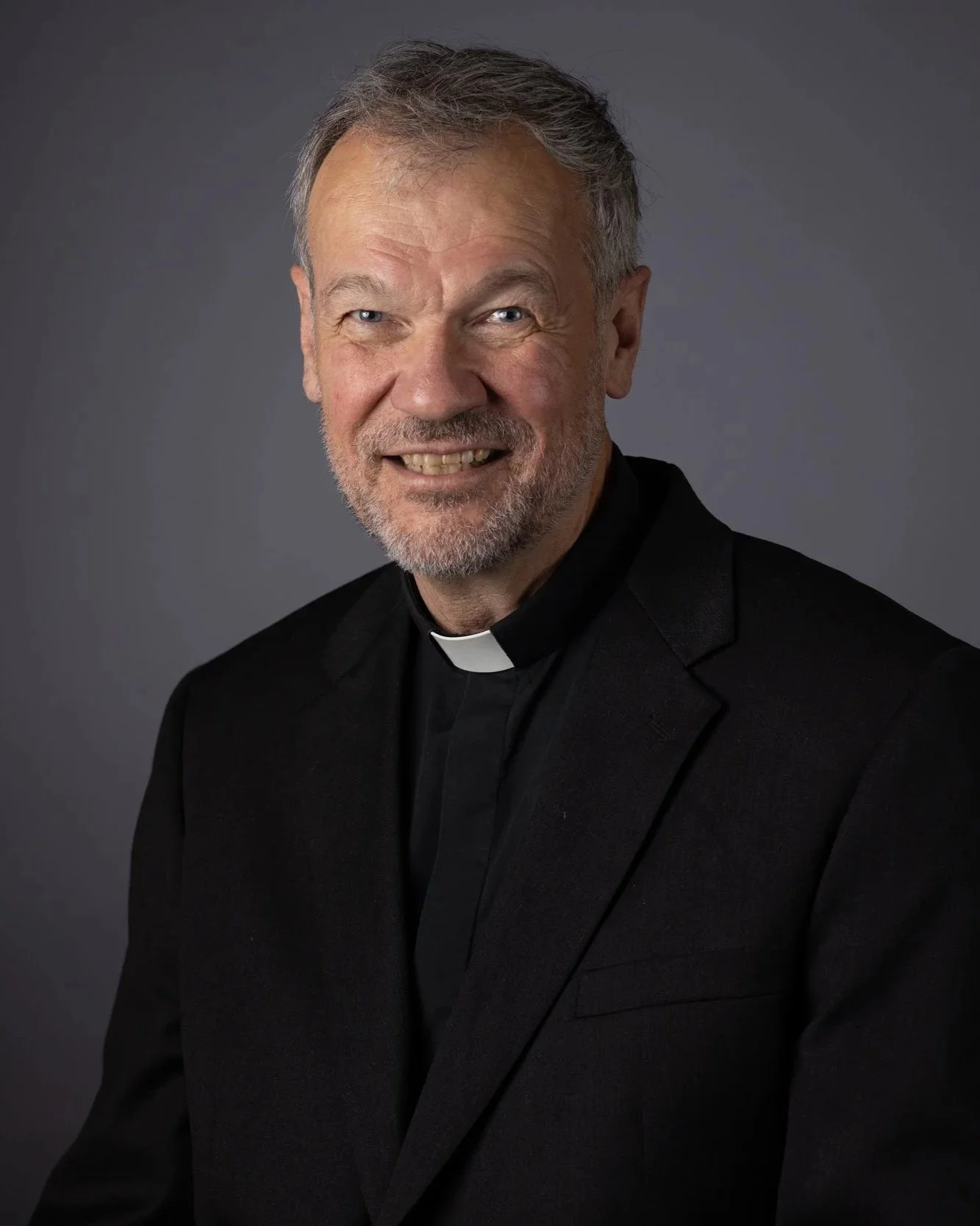
Sacred Heart Major Seminary in Detroit.
Diocesan seminaries have long relied on Jesuits as teachers and spiritual advisors
By Garan Santicola
Fr. Michael Maher, SJ
It’s a great joy to learn about the conversion experiences of seminarians,” says Fr. Peter Ryan, SJ, who teaches moral theology at Detroit’s Sacred Heart Major Seminary. “It’s interesting to see how God has been turning people to him and revealing himself at just the right times in the lives of these young men.”
Along with Jesuit Fathers Cyril Whitaker and Stephen Wolfe, Fr. Ryan serves as a spiritual director at Sacred Heart, continuing the long tradition of Jesuits working in diocesan seminaries. Today, Jesuits focus primarily on spiritual direction, but the model for educating seminarians was established by the Society of Jesus.
“It is an interesting fact that most of the seminaries in the world prior to the French Revolution were run by Jesuits,” says Jesuit historian Fr. Michael Maher, SJ, of Marquette University in Milwaukee. “The first true seminary was the brainchild of St. Ignatius of Loyola when he created what became known as the German College. Most seminarians are amazed to know that we Jesuits taught people how to say Mass until the 20th century.”
IT IS AN INTERESTING FACT THAT MOST OF THE SEMINARIES IN THE WORLD PRIOR TO THE FRENCH REVOLUTION WERE RUN BY JESUITS.
Saint Ignatius started the German College in Rome in 1552 to provide German students the opportunity to live in a formative setting while studying for the priesthood at the Roman College (now known as Pontifical Gregorian University), the educational institution he had founded the year before for all seminarians studying in Rome.
In the decades that followed, the Society of Jesus opened residential colleges for seminarians from other countries to study at the Roman College. During that time, Jesuit educators were called upon by bishops to establish seminaries in local dioceses in northern and eastern Europe. This arrangement proliferated for two centuries until it was scaled back due to the anti-Jesuit political turmoil of the late 18th century.
Today, many residential colleges in Rome have returned to relying on the spiritual direction of Jesuits—and Jesuits who work in dioceses around the world are valued for the unique perspective they bring, both as educators and spiritual directors.
Fr. Robert Kroll, SJ
Recently ordained Fathers Ariel Orozco, Michael Courchaine and David Sweeney of the Archdiocese of Milwaukee received Jesuit mentorship while in formation at Saint Francis de Sales Seminary in St. Francis, Wis.
“Jesuits have a way of helping us discern with sincerity, clarity and with great confidence, in God,” says Fr. Orozco, an associate pastor of a family of five Milwaukee parishes.
Father Courchaine, an associate pastor of Lumen Christi Catholic Church in Mequon, Wis., says, “The Examen is a prayer I both practice and recommend to parishioners. I also use the basic guidelines of the Ignatian discernment of spirits when it comes to my own discernment or the spiritual guidance of others.”
JESUITS HAVE A WAY OF HELPING US DISCERN WITH SINCERITY, CLARITY, AND WITH GREAT CONFIDENCE, IN GOD.
Father Sweeney is a graduate of the Jesuit-sponsored Marquette University High School in Milwaukee and serves as associate pastor of Saint Dominic Catholic Parish in his hometown of Brookfield, Wis. After his experience with the Jesuits in high school, he marveled at the preaching of Fr. James Kubicki, SJ, one of the spiritual directors at Saint Francis de Sales Seminary.
“He makes the episodes from Scripture come alive,” Fr. Sweeney says. “Sitting in the pew, you’re transported to first-century Galilee, and you’re suddenly among the Apostles, walking with Jesus. The Spiritual Exercises have a week that follows the life of Jesus. It seems like the Jesuits I know spend their whole life in that week. I’ve tried to emulate that in my own life and preaching.”
Saint Francis de Sales Seminary in St. Francis, Wis.
Photo: Rick Gagliano
Before attending Saint Francis de Sales, Fr. Orozco spent four years in formation at St. Joseph College Seminary at Loyola University Chicago. “I was fortunate to have had Fr. John Murphy, SJ, as my spiritual director for three years,” Fr. Orozco says. “A holy man, indeed.”
At Saint Francis de Sales, Fathers Orozco, Courchaine and Sweeney received spiritual direction from Fr. Robert Kroll, SJ, director of spiritual formation.
“My favorite memory during my time at the seminary with Fr. Kroll was the retreats,” Fr. Orozco says. “Fr. Kroll always brought a unique perspective, one heavily influenced by the Society of Jesus.”
Father Courchaine admired Fr. Kroll’s humanity. “You could expect him to be the first to offer compassion in a moment of hardship, but also the first to jokingly make fun of you for a quirk or an embarrassing moment,” Fr. Courchaine says.
After being ordained, Fr. Sweeney invited Fr. Kroll to preach his Mass of Thanksgiving— his first Mass after ordination.
“I chose him because of the profound impact he had in shaping me to be the priest I am today,” Fr. Sweeney says. “Fr. Rob is very natural with people, and I think that flows from his own priestly heart. That virtue of naturalness helps form the hearts of men in a way that isn’t forced. It’s the same way a dad naturally shapes the hearts of his sons.”
IN THIS ISSUE
ON THE COVER
Saint Ignatius College Prep senior Courtney Beatty (’26) at The Narrows in Zion National Park as part of the Chicago high school’s On Holy Ground summer course.
Photo: Fernando Fonseca





